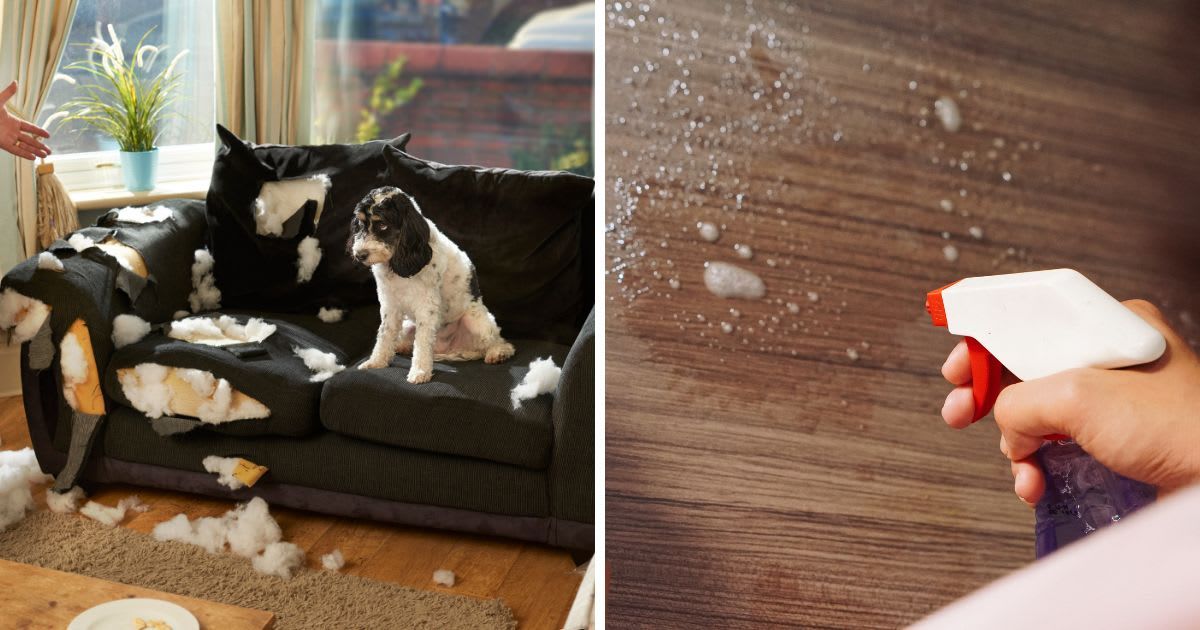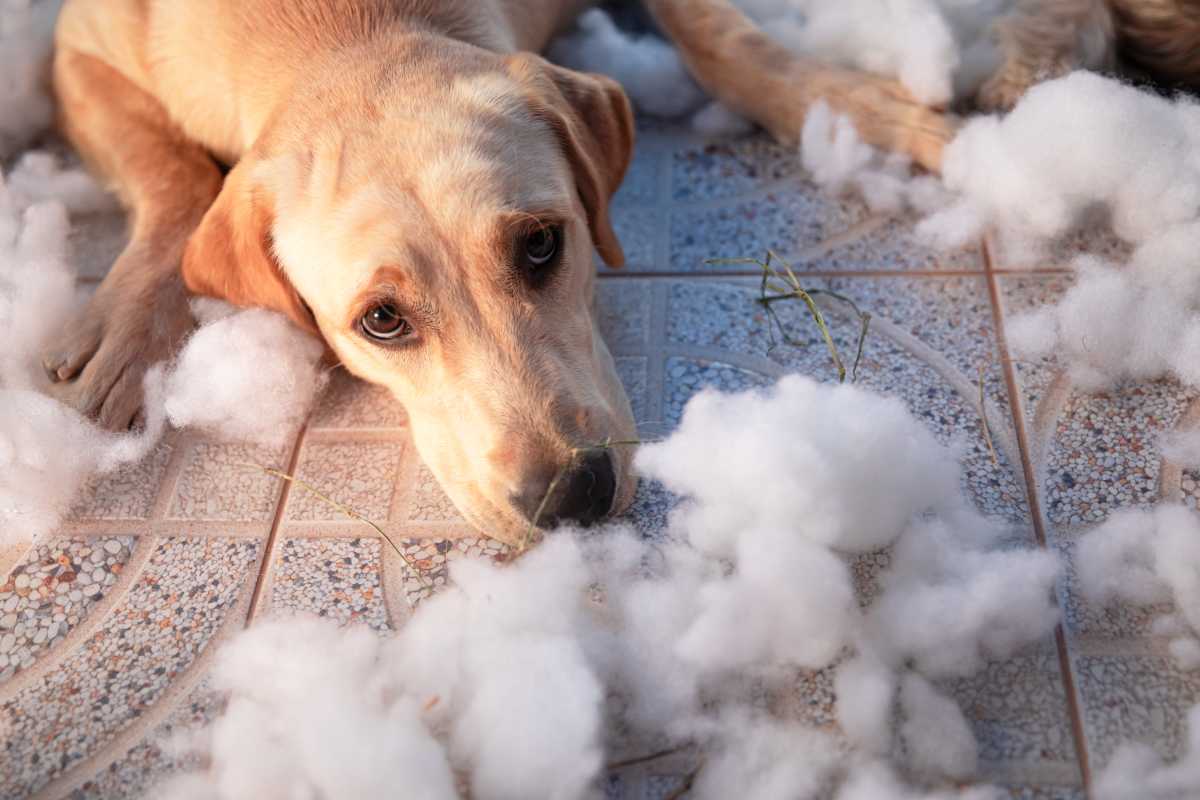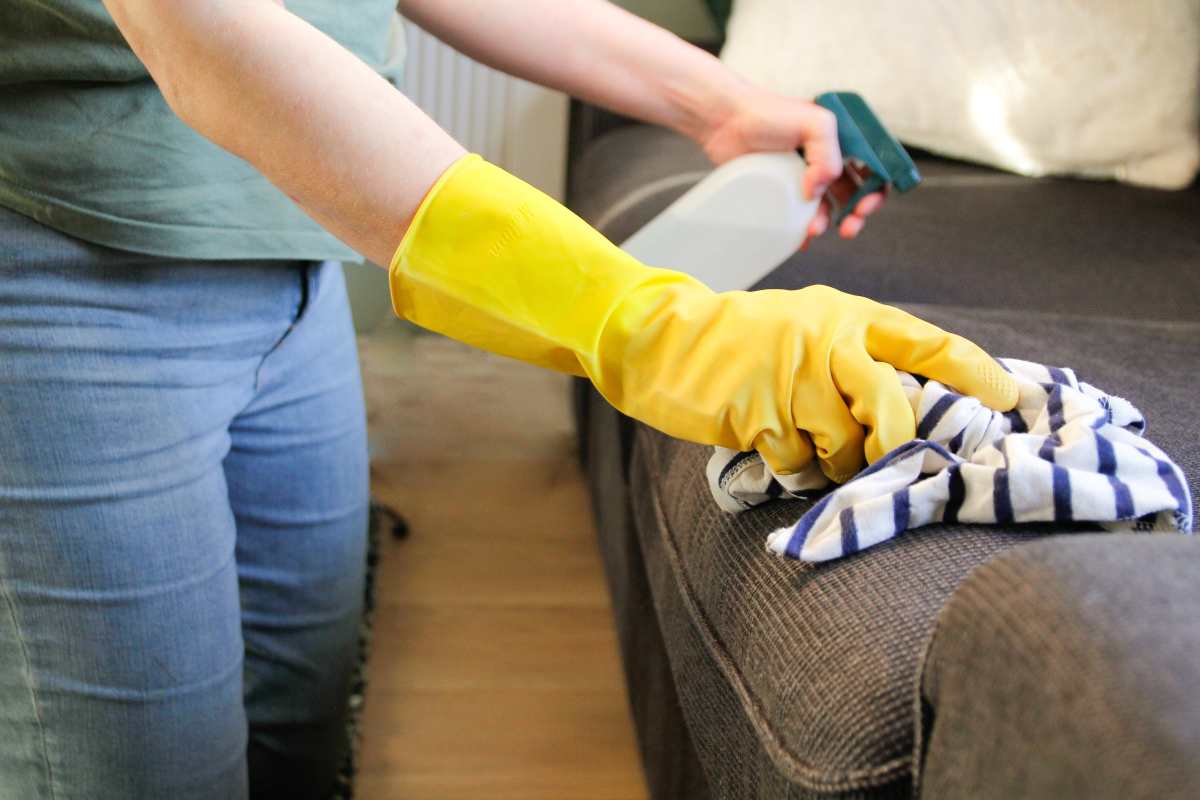Pet expert recommends a spray hack under $5 to keep your dog from chewing your furniture

Pets and furniture do not make a great pair. Pets chewing household items is common and costly, sometimes leaving owners with hefty repair bills. Petlab Co (@petlabco) has shared a simple hack that can be used to deter pets from nibbling on the edge of a couch or dining table. The nifty hack, made with ingredients readily available at home, is a cheap solution to an expensive problem, and has pet owners thrilled to try it out on their furry friends.

In a viral clip on TikTok, the pet page recommended trying out a spray hack that can make furniture in the house chew-proof. This can be done by simply using a mixture of two cups of apple cider vinegar and one cup of white vinegar. Transfer the concoction into a spray bottle for ease of use and spray some onto the furniture, preferably chew-prone areas. “This spray is non-toxic for your pup and safe to use on furniture and fabric,” the video explained. The effectiveness of the hack lies in the bitterness of the vinegar spray, a flavor that discourages the pet from chewing.

The post received 3,629 hearts and several comments from pet owners sharing their personal opinions on the spray hack. Many worried about their house smelling like vinegar. “And have my couch smell like vinegar? Nope,” said @maskedsparro while @.emerald.dogs revealed, “This doesn’t work for me. My dog still chews, although we tried it. A dog that chews is bored.” “Doesn’t work because it evaporates. So, within an hour, chewing again,” noted @commentator457. Someone else (@no.no.no.no.no.no.no123) said, “Tried this, my dogs love it. They literally licked it all off before continuing to chew up the chair arm.”

According to ASPCA, chewing on objects is a normal part of development for pups. In the dog world, chewing is a way to relieve pain in young dogs with incoming teeth. Older dogs chew to keep their jaws strong and teeth clean. Socially, chewing is often a way to get rid of boredom, mild anxiety, or frustration. However, there can be a variety of factors involved in determining what may be causing the compulsive chewing behavior in pets. Hunger is one concern. Pets on calorie-restricted diets may destroy objects to find alternative sources of food. Dogs often chew on objects to relieve stress and separation anxiety, mostly when they are left alone in the house.
@petlabco Omg this actually works?! #naughtydog #anxiousdog #dogchewing #doghacks #dogparents ♬ FEEL THE GROOVE - Queens Road, Fabian Graetz
Pet owners can take measures to discourage chewing and help train their pets to let go of the bad habit. Exercise and stimulation with dog toys can reduce chewing tendencies and keep them relaxed. An exhausted dog will barely have the energy to nibble on hard furniture surfaces. Different breeds of dogs require varying levels of exercise. Larger dogs would need more than two walks a day to be content, like Pugs and Poodles, while Australian Shepherds and Dalmatians may require an hour of activity at least, per Yolinda Animal Hospital.
You can follow @petlabco on TikTok for more videos.